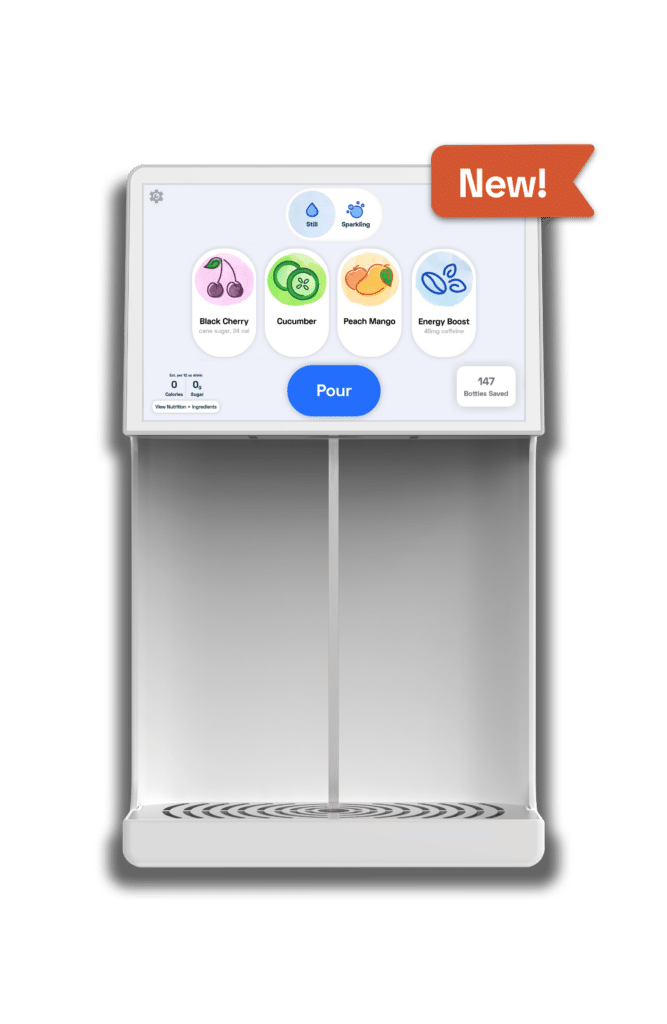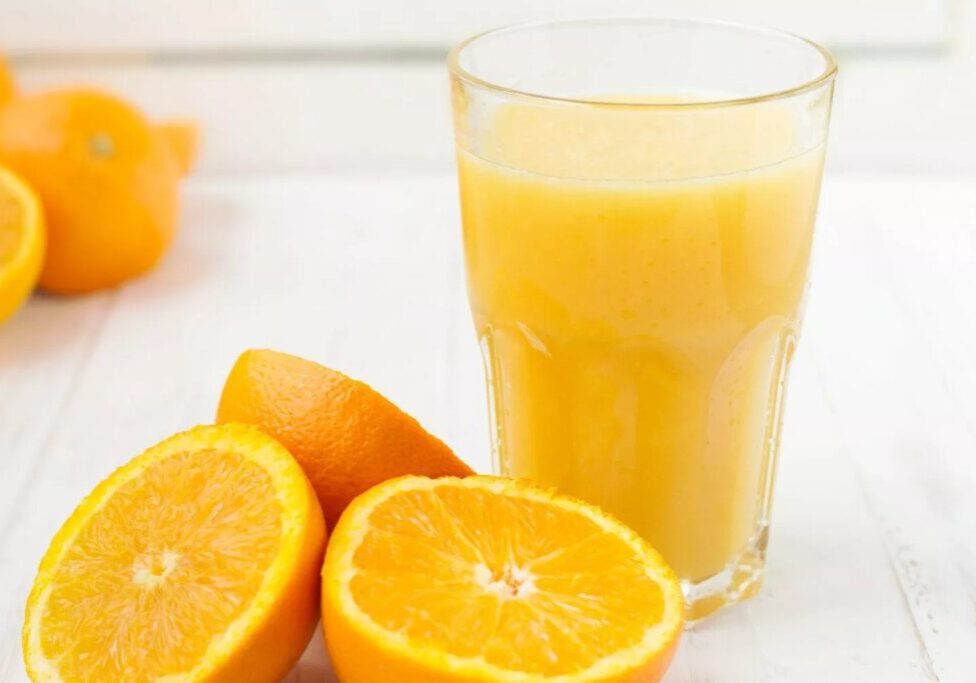From nursery schools to nursing homes, juice is a staple of most educational and care facilities in the US.
When pitted against soda or sports drinks (the two beverages most closely linked with the US’ obesity epidemic), fruit juice seems like the obvious, nutritious choice. Despite popular opinion and government backing, there is, in reality, a dark side to juice: sugar.
Sugar: juice’s best kept secret.
Over the past few decades, skyrocketing obesity rates have spurred public health organizations to speak out directly against the health consequences of soda and other sugary beverages. (Consider this: just one bottle of Coke contains 184 calories and a whooping 44 grams of sugar.) Due to heightened public awareness, soda consumption and sales have steadily declined over the past five years, while demand for healthy carbonated beverages has skyrocketed.
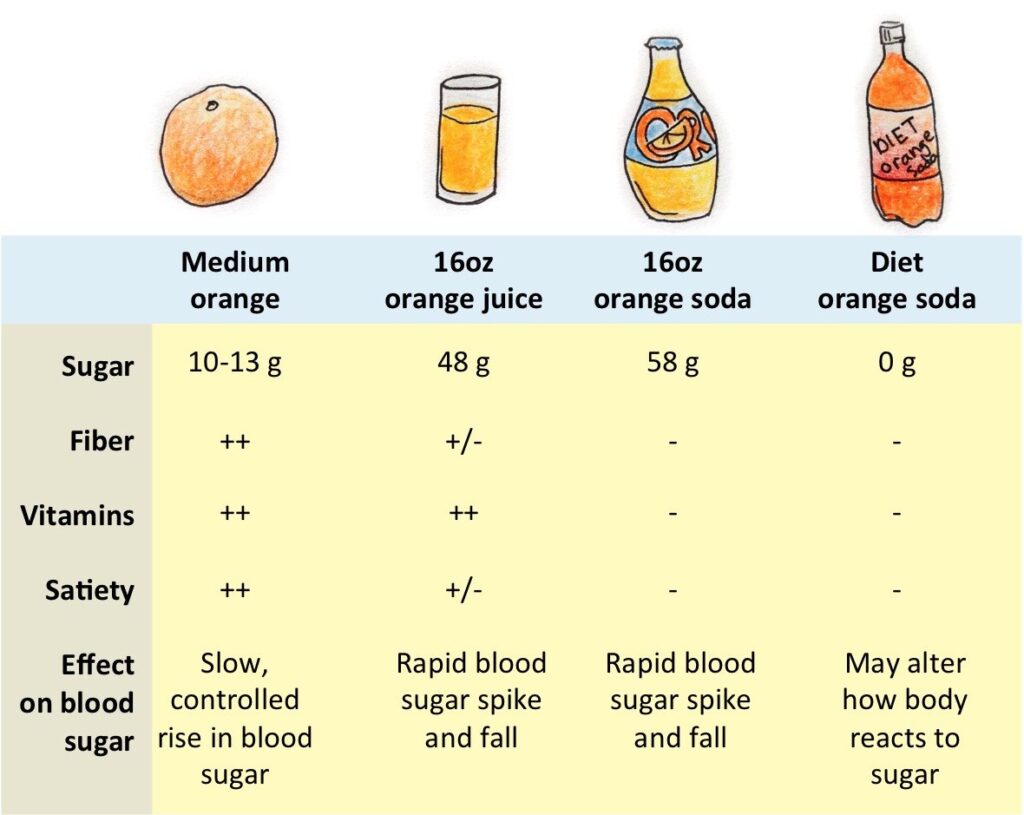
Source: https://ow.ly/ARpQ30l0FZR
Fruit juice, however, remains unscathed. Despite its links to risk for obesity, the health officials speaking out about the drawbacks of fruit juice remain a minority. While juices are more nutritious than sodas, they often contain just as much sugar. For example, a 12-ounce glass of orange juice contains nearly the same amount of sugar as a can of Coke, around 10 teaspoons of sugar. Similarly, cranberry juice contains almost as much sugar as the average root beer.
While 100% fruit juice consumption has declined among adolescents and people over age 40, the proportion of preschool age children drinking juice regularly has remained steady. And juice companies and the Department of Agriculture are likely to blame. Both parties continue to market fruit juice as an acceptable substitute for half of the recommended daily servings of fruit. So long as the majority of caregivers consider juice a healthy option for children and the elderly, juice is likely to remain on school lunch trays and hospital menus indefinitely.

Drinking juice is not as healthy as eating whole fruit.
The process of juicing removes an important component of whole fruits and vegetables: fiber. Although humans can’t digest fiber, it’s nevertheless essential to a healthy, balanced diet. Fiber extenuates the process of sugar absorption and helps to maintain stable blood sugar levels. So while the amount of sugar in a fruit and its juice are the same, the glycemic index of juice is much higher. Fruit juice contains nothing to stop—or slow down—the absorption of sugar. This kind of sugar rush can lead to everything from energy crashes to long term issues such as weight gain or type 2 diabetes.
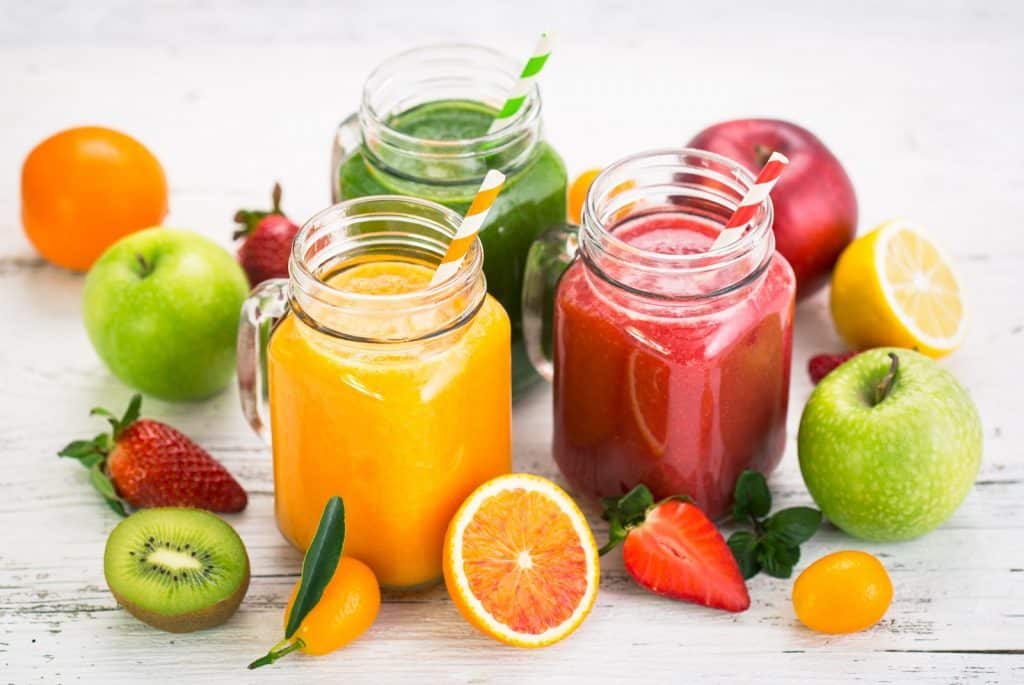
Fruit juices are also significantly less satiating than eating whole fruits. Several studies show that eating nutrients is more satisfying than drinking them: juice just isn’t as filling. Other research reveals that people typically add juices to their diet, rather than substitute them for calories in their normal diet. As a result, drinking juice increases the amount of calories they consume daily, while providing little added nutritional benefit.
A healthy substitute for juice suitable for schools, hospitals, healthcare facilities, and beyond!
Given juice’s lack of fiber and easily absorbed sugar, opting to eat the whole fruit itself is a no brainer. Finding a beverage to replace the refreshing, fruitiness of juice, on the other hand, is a more ambitious task.
Commercial cafeterias often attempt to cut back on sugary beverages by offering their patrons water jugs with freshly cut fruit or fruit infused water that has steeped overnight. While this is a flavorful, low-calorie solution, it’s not always the most efficient one, since some cafeterias don’t have the extra bandwidth to prepare, monitor, and restock the jugs.
https://www.youtube.com/watch?v=ZsfHhRKU7q8
Given the time and money lost on this approach, more and more cafeterias are opting for Bevi, a smart water dispenser that allows users to customize their water with a variety of zero-calorie, unsweetened fruit flavors. Bevi monitors its own consumables inventory, allowing food service staff to focus on, well, the food, instead of restocking water jugs. With flavors like Lime Mint, Grapefruit, Pineapple, Strawberry Lemongrass and Cucumber, Bevi is a simple way to offer refreshing, interesting fruit-flavored drinks, without the sugar rush of juice or the artificial sweeteners found in diet soft drinks.
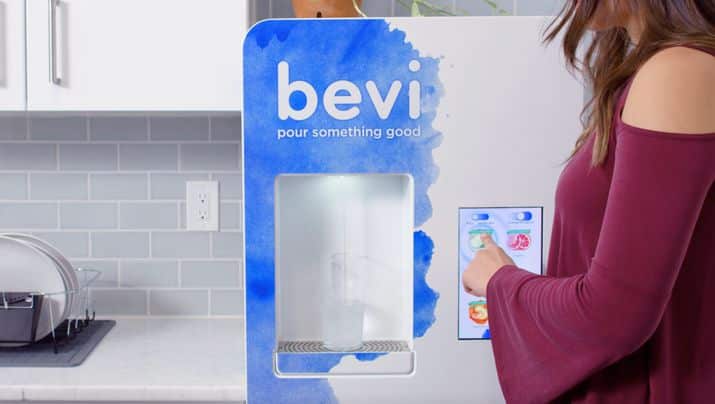
The widespread success of Bevi and other flavored water brands is due in large part to a national spike in sparkling water consumption. Rather than renounce fruit juices or carbonated beverages entirely, consumers now look to low-calorie, fruit-flavored still or sparkling waters to satisfy their cravings. As flavored water sales continue to rise and the healthy beverage trend continues to gain traction, only time will tell just how long juice’s sugar-rush will last.



